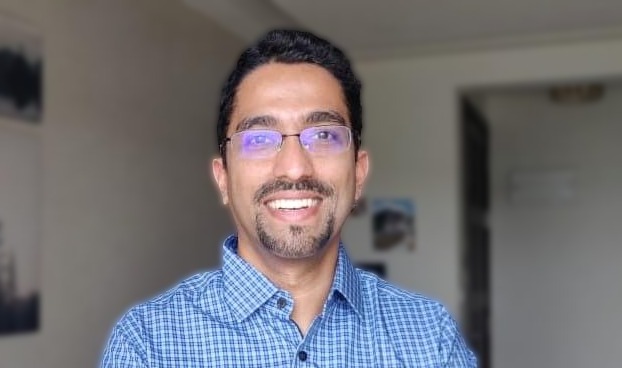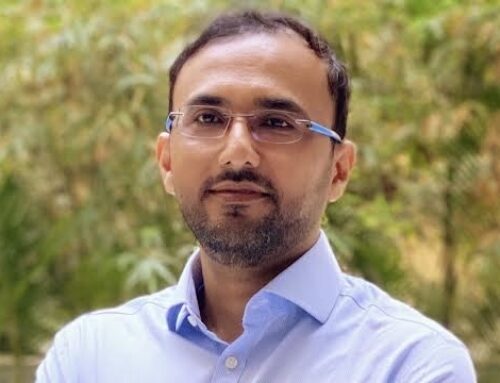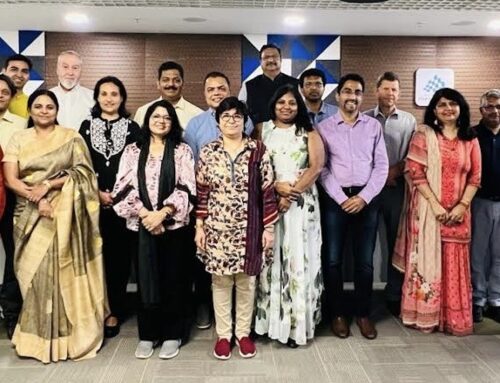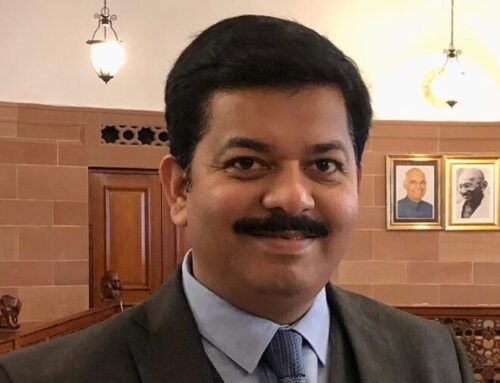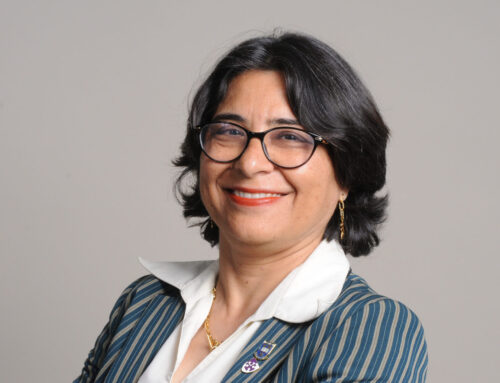John Hoffmire: Like so many CRISP scholars, you’ve had an interesting journey including everything from being a research engineer to managing two successful venture capital funds you co-founded. Tell me how your career has taken shape.
Shyam: For me personally, it began back in 2001 when I got an opportunity to be part of a nanomaterials startup in Ann Arbor, Michigan when I graduated from a Masters program in materials engineering. I bounced around couple more next gen energy startups developing high temperature fuel cells in Boston and Connecticut. Then in 2004, I decided to explore if I could handle a PhD program in energy policy at the University of California – Davis and this led me to the China Energy Group at Lawrence Berkeley National Laboratory (LBNL) and the clean energy/transportation investment teams at the World Bank HQ in Washington DC where I was one cog in the wheel of a team exploring potential low carbon transition pathways for the power and transportation sectors in India and China. Then in 2007, through a happy coincidence, I connected with an early stage cleantech venture capital fund in London called Conduit Ventures launching their second fund, backed by Shell, Mitsubishi, and Goldman Sachs, investing in early stage startups developing innovative solutions in the energy storage and emissions control space across Europe. In 2011, I decided to explore the cleantech venture ecosystem in Asia and this led to a brief stint at Nadathur Holdings, a family investment office in Singapore, which focused on opportunities in South and South East Asia.
In 2012, opportune circumstances brought me in touch with my partner in crime of the last 9 years, Kunal Upadhyay, who founded CIIE, one of India’s largest startup accelerators based at IIM Ahmedabad. We launched India’s first early stage cleantech VC fund in 2013 backed by biggies like BP, IFC, Govt of India. Success of this initiative led us to expand our partnership to five partners and we have since launched two more initiatives; Bharat Innovation Fund (BIF), a deep-tech focused Series A VC fund, and Bharat Inclusive Technology Fund, which is more impact focused backed by Gates, Dell, Omidyar and Soros Foundations.
In Bharat Innovation Fund, our aim is to help catalyze transformational deep-tech startups by providing them not only with capital, but also with access to market, strategic inputs and partnership connections. As fund managers, we attempt to bring together global networks, strategic insights, distribution channels, and sectoral understanding to help catalyze the growth of the companies we support.
John: The name Bharat means something, doesn’t it?
Shyam: It does. Bharat, in fact, is as an acronym for Better Healthcare, Agriculture, Renewables and Technologies. Our firms seek to make minority investments in seed and early-stage startups in the area of healthcare devices, advanced biotechnology, and enterprise Saas sectors in India. For those who don’t spend much time in India, it is important to know that the word Bharat is Hindi for India.
John: Can you give me an example of a recent company that BIF has invested in?
Shyam: Sure. I’ll mention two companies we’ve invested in recently that are in very different fields but both founded on innovative technology. First, in the area of Augmented Reality (AR) enabled digital smart toys space called Playshifu. The company uses AR to provide engaging educational games for kids. With screen time for children ages 4 to 9 averaging as high as five hours per day, we have a responsibility to help kids develop their early-learning skills in this digital age. Playshifu has recorded 150 percent growth in revenue for the third consecutive year and nearly doubled the number of team members from 60 in 2019 to 115 in 2020. They plan to expand their product range from 12 to 30 products to cover over 20 early-learning skills by 2022.
Another example is Zumutor, a leading immuno-oncology company in the space of targeted NK cell therapeutics. They have two proprietary antibody engineering platforms to develop novel immunotherapies that target innate immunity and regulate the tumor microenvironment, which is specifically used to fight prostrate and breast cancer. They are headquartered in Cambridge, MA with their research laboratory in Bangalore, India.
John: We’ve talked before about the challenge of decarbonizing the global economy and the need to invest in climate technology with the goal to reach net-zero emissions before 2050. Tell me more about that.
Shyam: Currently, India has 21 of the 30 most polluted cities in the world, and it also happens to be the third largest globally in terms of CO2 emissions. The frequency and duration of heat waves and droughts are increasing. As well, square kilometers in India under dry spells, flash floods, urban floods, and extreme rainfall events are also going up because of climate change. While many countries have plans to reduce these emissions within a set time period, India needs to invest more in both the climate change mitigation and adaptation sides of this issue.
Climate Tech is opening up multi-billion dollar opportunities to entrepreneurs worldwide. In a country like India, investing in businesses that are focused on mitigating climate change could build many pathways towards sustainable development. The central motif would be to reduce the CO2 intensity by offsetting the use of fossil fuels with the increased use of renewables, promoting energy efficiency and transitioning to an electric vehicle future. These mitigation measures will help in reducing the climate impact caused by human actions.
In addition, global consumer demand for climate-friendly products has rocketed, with companies like Tesla, Beyond Meat, and Nest leading the way. We are in the very early days of a significant positive shift in consumer demand for environmentally friendly products and solutions in India. This should also lead to a plethora of new offerings in the climate positive B2C space in the coming days.
Unleashing latent entrepreneurial energy to tackle one of the most significant challenges facing humanity will only make India more assertive, self-reliant and better prepared to take care of its people in a sustainable way.
John: That sounds like the perfect mission statement for one of your funds. By the way, I understand that you have collaborated with one of your CRISP fellows. Often when I talk with CRISP fellows, people point out to me that these interviews I have been doing with CRISPers are all about how one person makes a difference. Actually, that’s not how you are. Will you tell me about how you have participated with Vishal to help build cooperation where it is clear that it takes a whole bunch of different players to create a success?
Shyam: Vishal Pandya is a co-founder of Re-Connect Energy. We invested in Vishal and Vibhav (co-founder) back in 2014 when their journey was beginning to take shape. We have stood by them over the last seven years, have helped them every way we can and have seen how well they have managed all the drama that comes with being associated with the growth of a new industry like renewables in India. End of the day, we are just the investors. Vishal, Vibhav and their team create the real value. It’s important for venture capitalists to remember where the value is created.
John: I always end these interviews by asking about your experience with the Chevening Research Science and Innovation Leadership Programme (CRISP).
Shyam: I was a CRISP fellow in 2014 at the Said Business School at Oxford, University. What I appreciated most about it was that it gave me the time and space to step away from the trajectory of my career and to evaluate and reassess what I wanted to focus on and what matters most to me. It’s a wonderful and rare chance to recalibrate with the structure and guidance of a business and leadership program, the support of a cohort of similar midcareer leaders from all sorts of industries and enterprises, and the fun that Oxford University and the field trips and events had to offer. It’s an innovative and successful combination.
John: I have fond memories of our conversations and swapping stories about U.C. Davis when you were at Oxford. Thank you so much for catching me up on the work you are doing, especially the work on climate and sustainable technology. We need more passionate leaders like you.
Shyam: Thank you, John. It’s always a pleasure to reconnect with you.
Read the entire interview here are The Center on Business and Poverty
Dr. Shyam Menon is a partner and co-founder of Bharat Innovation Fund and Infuse Ventures, and is Chief Growth Officer at CIIE.CO. He is also an alum of the Chevening Research Science and Innovation Leadership Programme (CRISP) at Oxford (2014)
Interviewer: Dr. John Hoffmire is the Chairman of the Center on Business and Poverty, and Research Associate at the Oxford Centre for Mutual and Co-owned Business

